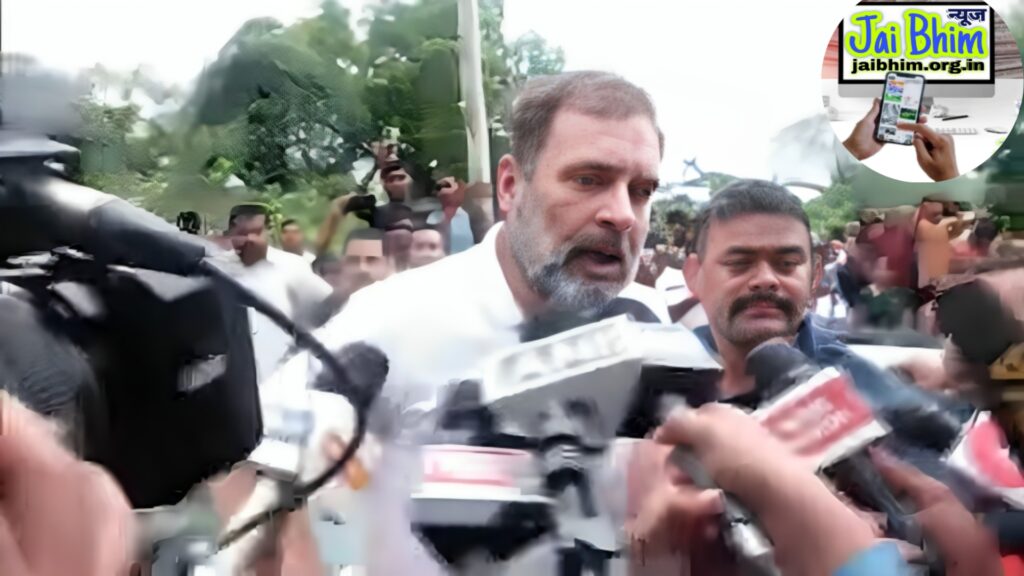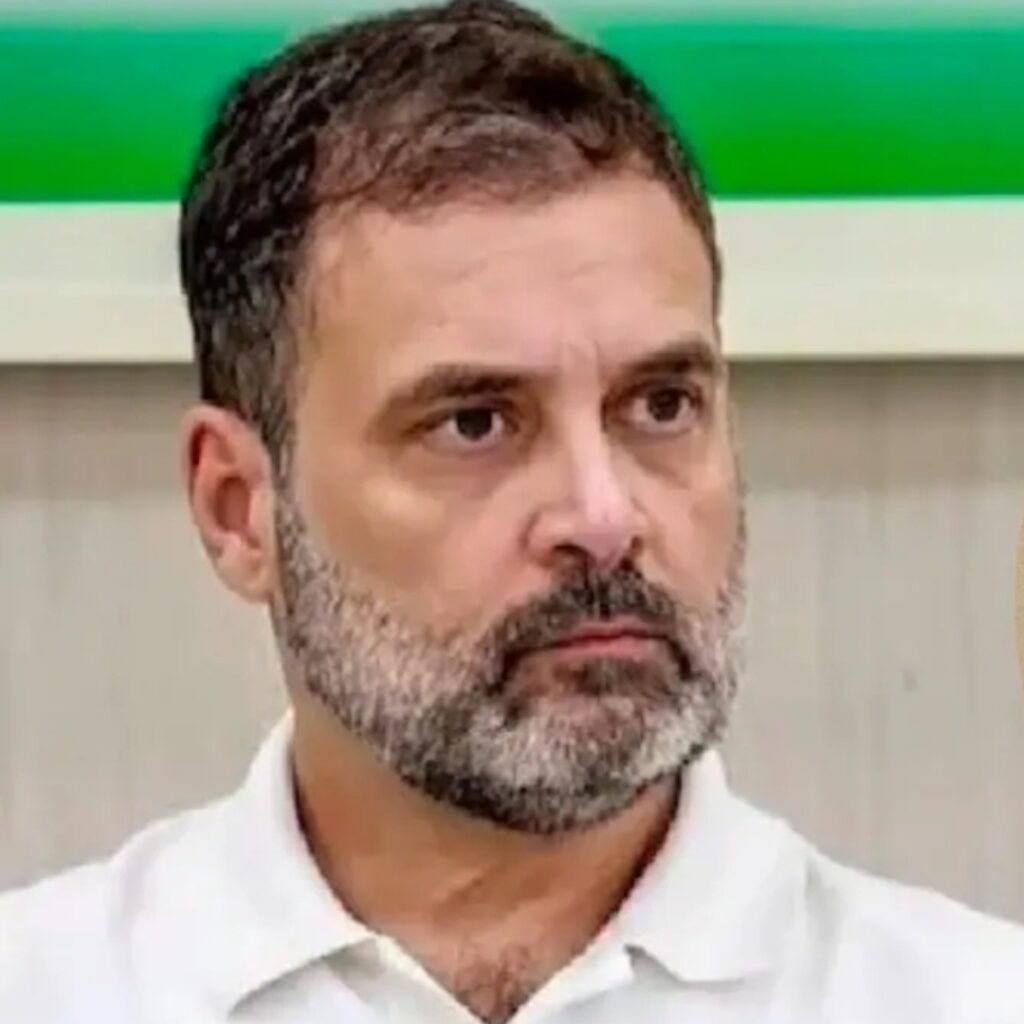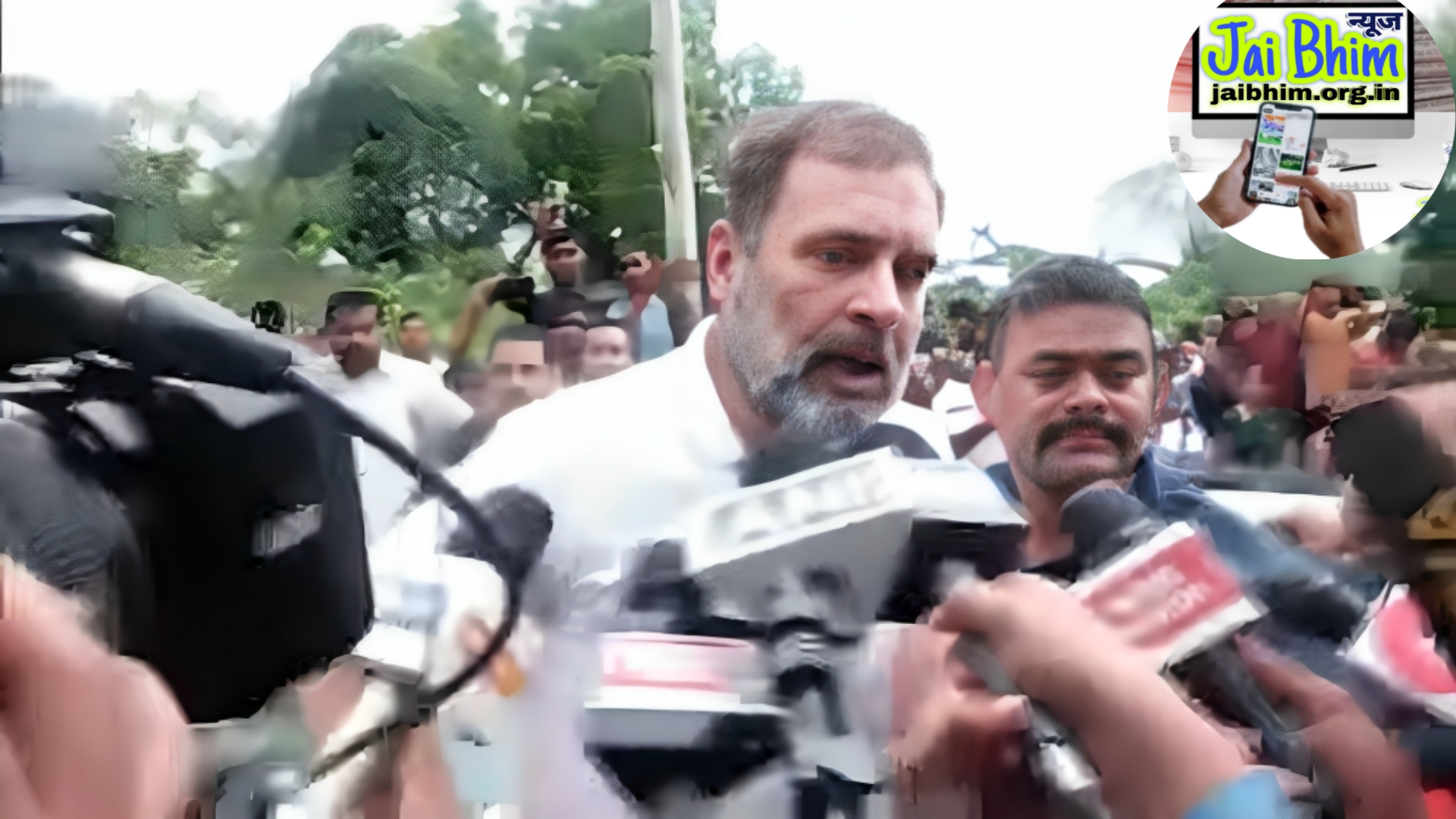
Rahul Gandhi Rebukes Media
Rahul Gandhi once again scolded the media, which is addicted to finding masalas, in such a way that the so-called upper caste reporters standing in front of and behind the camera were scared and not only scared but also somewhat embarrassed. They must not have been very embarrassed because most of them have become extremely shameless.
Rahul Gandhi Condemns Media for Diverting Attention from Dalit Murder
During a visit to Raebareli, Congress leader Rahul Gandhi delivered a scathing rebuke to the media, accusing journalists of diverting attention from critical caste issues and displaying an inherent bias against marginalized communities. Gandhi’s outburst occurred while he was meeting the family of Arjun Pasi, a Dalit youth allegedly murdered by Naveen Singh, a member of the same caste as Uttar Pradesh Chief Minister Yogi Adityanath.
Gandhi criticized reporters for focusing on unrelated incidents, such as the death penalty debate in a Kolkata rape case, instead of addressing the urgent issue of caste-based violence in Uttar Pradesh.
Allegations Against Chief Minister Yogi Adityanath
Rahul Gandhi’s visit to Raebareli was primarily to address serious allegations against Chief Minister Yogi Adityanath, who has been accused of protecting members of his own caste implicated in the murder of Arjun Pasi. The case has gained national attention, particularly because of Raebareli’s status as a key constituency for the Leader of Opposition.
Arjun Pasi was shot dead by Naveen Singh on August 11 in Pichavarwa village. While the police have arrested six individuals connected to the case, the main accused, Naveen Singh, remains at large. This has fueled accusations of caste-based favoritism and has intensified scrutiny of the Uttar Pradesh government’s handling of the case.
Rahul Gandhi’s Interaction with the Victim’s Family
Rahul Gandhi met with Arjun Pasi’s grieving family, pledging to fight for justice on their behalf. He expressed concern over the lack of action against the primary accused and accused the police of deliberately arresting minor accomplices while allowing the mastermind to evade capture. Gandhi also highlighted the threats faced by Pasi’s family, criticizing the local authorities for failing to ensure their safety.
“I will not back down from this issue,” Gandhi stated. “The victim is a Dalit, and the oppressor is from the Chief Minister’s caste. That is why the police and the government are being indifferent towards this case.”
Gandhi recounted his conversation with Arjun Pasi’s mother, who revealed that her son had been killed after demanding payment for his work as a barber, which the accused had refused to pay multiple times. According to the complaint, Arjun Pasi was shot by Naveen Singh late at night after a dispute earlier in the day. Despite the seriousness of the crime, the police have yet to arrest the main accused, prompting further criticism from Gandhi and other opposition leaders.
Gandhi’s Media Critique and Broader Political Implications
Gandhi’s anger towards the media was palpable as he accused journalists of attempting to downplay the Dalit murder case by shifting focus to unrelated events. He criticized the media for its internal casteism and its reluctance to address issues affecting Dalits, backward classes, tribals, women, and minorities.
Rahul said that now I know that you do not want this matter to be raised, you want it to be destroyed. Further he said that I know your interest is not at all in raising the matter of murder of a Dalit which is a matter very close to you. That is why you want to drag towards a matter which happened 1500 km away from here and secondly, you always shy away from raising the issue of Dalits but I am not going to get caught in this trap. I will only talk about the issue that I have come here to raise.
“You people have no place for Dalits in your hearts,” Gandhi declared, accusing the media of deliberately trying to “destroy” the narrative around the murder of a Dalit youth. He reiterated his commitment to discussing the issues that matter most to marginalized communities, despite the media’s attempts to sideline these discussions.
This confrontation comes at a critical time, as Uttar Pradesh prepares for by-elections in ten assembly seats. The Congress party, along with the Samajwadi Party, has been increasingly vocal in its criticism of the BJP-led government, accusing it of caste-based bias and failing to protect Dalit lives. The controversy surrounding the Arjun Pasi murder case has further complicated the political landscape, with the opposition using it as a rallying point against the ruling party.
Rahul Gandhi’s Call for Caste Census
Rahul Gandhi has long advocated for a caste census to ensure fair representation of marginalized communities in all spheres, including the media. He referenced a previous encounter with journalists where he pointed out the lack of Dalit, OBC, and tribal representation among reporters. This, he argued, is symptomatic of the broader issue of caste bias in Indian society.

On October 10 last year, he had asked the journalists in a press conference at the Congress headquarters that how many of you are Dalit, backward and tribal. How many Dalits are there in this room, see how many OBCs are there in this room? Raise your hands and show! The journalists present there were stunned by this because none of the dozens of reporters present there was a Dalit, backward or tribal. Even if there was one from the backward class, he was a cameraman who came from the backward class. That is why Rahul Gandhi repeatedly demands caste census.
Anurag Thakur’s Abusive Remarks on Rahul Gandhi During Parliament Session
During a heated exchange in the budget session of Parliament, BJP MP Anurag Thakur made headlines for his controversial remarks directed at Congress leader Rahul Gandhi. Thakur, in a display of caste pride, reportedly called Gandhi “badjat,” a derogatory term that implies disrespect towards one’s parents. The insult came in the context of a debate over Rahul Gandhi’s persistent demand for a caste census, an issue that has been a point of contention between the ruling BJP and opposition parties.
The term “badjat” is considered highly offensive in many parts of India, as it is rooted in caste-based derogatory language. Thakur’s use of the term sparked outrage among opposition leaders, who accused him of not only abusing Gandhi but also of promoting caste-based hatred. The incident underscored the deep-seated tensions surrounding the issue of caste in Indian politics.
Rahul Gandhi, who has been a vocal advocate for a caste census, argued that such a measure is essential to ensure fair representation of marginalized communities, including Dalits, OBCs, and tribals. His demand for a caste census is part of a broader push for greater social justice and equality, which he believes is necessary to address the historic injustices faced by these communities.
Also Read: Yogi Adityanath’s New Digital Policy: A Threat to Freedom of Speech in Uttar Pradesh
The exchange between Thakur and Gandhi has added fuel to the ongoing debate over caste in India, with opposition parties rallying behind Gandhi’s call for a caste census and condemning the BJP for what they perceive as its casteist attitudes. The controversy is likely to have significant political ramifications, particularly in states where caste dynamics play a crucial role in elections.
Gandhi’s latest comments are likely to reignite debates on caste-based discrimination and the role of the media in perpetuating or challenging these biases. His call for a more inclusive and representative media landscape aligns with his broader political strategy of advocating for the rights of marginalized communities.
As the by-elections approach, the outcome of this controversy may have significant implications for the political fortunes of all parties involved, particularly in Uttar Pradesh, where caste dynamics play a crucial role in electoral politics.

